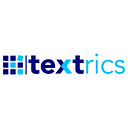
Intent Analysis is the process of determining the underlying intention behind any text or user-generated content in social networks.
But why is determining the expressed intents of customers and reviewers so important?
Well, any kind of written text, which may be a comment, review, feedback, or any other form of content, can provide deep insights into a customer’s requirements. It also lets us predict their next step, whether he/she wants to buy, sell, quit or recommend a product.
Understanding the intent behind a text can also help us classify the data quicker.
Here is an example:
“very confused… It keeps glitching, sometimes crashes (I think it’s a hardware issue). I’ll be returning it tomorrow.”
Being able to identify such intentions quickly and immediately taking action is of immense value. For any business, the challenge is — when you receive thousands of customer interactions in a day, it becomes almost impossible to scan through every text, email, comment, or social media post manually.
This is where automated systems that use artificial intelligence to sort through large volumes of content become very useful. They can successfully analyze the intent behind any text in seconds.
What is Intent Analysis?
Intent Analysis comes from Intent (ion) Analysis. It is a sub-field of text mining and a superior computational task. We can use it to analyze people’s desires, wishes, and attitudes from user-generated texts.
Through intent analysis, we can determine whether the content (social media posts, comments, tweets, emails, instant messages, and so on) that we analyzed in our application were produced with any underlying intention.
Textrics categorizes content into four types: News, Opinions, Marketing, and Spam.
What techniques are used for Intent Analysis?
Intent Analysis uses the Machine Learning Model (MLM) and Natural Language Processing (NLP) to understand the intent of a message or text. This process also involves providing examples of the text for training to “train the model”.
Textrics uses RNN (Recurrent Neural Networks) deep-learning techniques to classify data and understand its intent. RNN-based models view a text as a sequence of words and are intended to capture word dependencies and text structures. Among many variants to RNNs, Long Short-Term Memory (LSTM) is the most popular architecture designed to better capture long-term dependencies.
Our software can promptly make classifications based on News, Opinions, Marketing, and Spam.
LSTMs model sentences are also trained on social media data and news data differently for handling casual and formal language. We also have trained this algorithm for various custom datasets for different clients.
What can you do with the received Intent Data?
Intent Data provides extensive insight into a web user’s intent, especially in a B2B scenario. This allows you to identify if and when a possible prospect is actively considering or looking to purchase your products or services.
Below are some use-cases of Intent Analysis:
- Conversational AI such as chatbots — With the help of NLP, chatbots can go a long way in parsing multiple user intents to minimize failures. The user inputs the message through a chatbot, which is further fragmented to include a few words.
- Content Recommendation — Intent data helps us with the content recommendation, suggesting content that might interest our readers. This is a subclass of information filtering systems, which encourages readers to become more engaged.
- Semantic Search — Through concept matching, synonyms, and natural language algorithms, semantic search with the help of intent analysis, provides more interactive search results through transforming structured and unstructured data. It helps to understand a searcher’s intent through contextual meaning.
- B2B marketing — Intent data can help marketers identify precisely when someone is considering a particular solution and provide an accurate, effective solution. Intent Data can also be used for the Timing, Context, and Relevance of the text. Based on that, several possibilities can be worked on, for example,
i. Campaigns can be built to recognise active buyers at the exact moment.
ii. Requirements of a relevant message, with the right context, at the right time.
iii. Gaining insight on purchase intent and taking appropriate actions.
Therefore, we observe that Intent Analysis finds its use in a variety of contexts across several industries, viz., healthcare, education, government,
How can Intent Analysis be useful for your business?
For any kind of business, being customer-centric is crucial. Intent Analysis is instrumental in the field of sales, marketing, and customer support.
The application of intent analysis can be seen in various business activities such as:
- Spam Detection: Spam such as invalid emails, phone calls or messages can be easily detected as it is hard for spammers to hide their identity from the intent analysis.
- Handling Customers: The intentions of customers can be a query, suggestion, complaint. Using intent analysis, we can know the preferences of the customers and then solve accordingly.
- Scale as you grow: With intent analysis, companies can pinpoint potential customers who have expressed interest and direct these specific queries to the sales teams.
- Advertising via social posts: Using intent analysis, you can quickly identify the pattern of the intentions and decide a perfect place to show your ad to the customers depending on which social media network they are using.
- Gain analytics from sales campaigns: When the explicit intents of customers are identified in sales and marketing campaigns, businesses can create factual data reports about conversion rates, interested buyers, upsell opportunities, and much more.
To summarise, the use of Intent Analysis can be very advantageous for any business as it can help you grow by gauging the intent of your customers efficiently. It is the fastest way to scan through huge volumes of data and take appropriate actions.
If you would like to see how Textrics can help you take the next step, request a free demo now.
Visit our website for more information: www.textrics.ai








